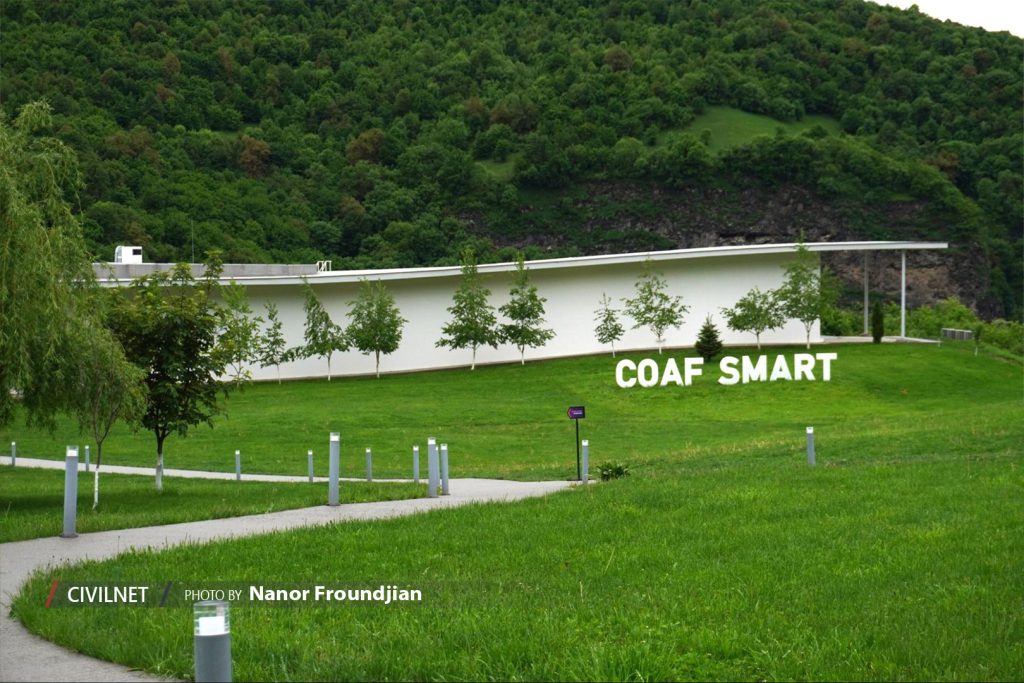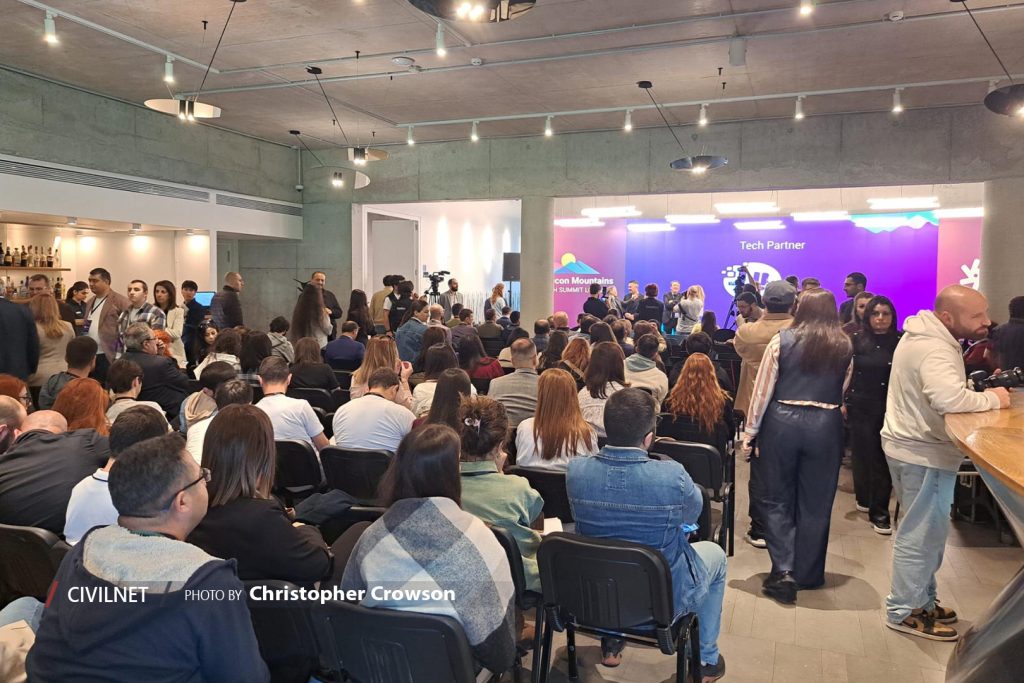By Christopher Crowson
With more and more public and private institutions storing data online in Armenia, the country and its digital infrastructure are increasingly at risk of cybersecurity attacks.
This pressing matter was discussed at the 2025 Silicon Mountains Lori Forum and Expo, held on May 15, where one of the three hour-long panels was dedicated to Cybersecurity & Data Protection in Armenia. AI & Automation and Intelligent Digital Infrastructures were the topics tackled in the other two panels.
Among the speakers of the Cybersecurity & Data Protection panel were John Gallagher, His Majesty’s Ambassador of the United Kingdom in Armenia; Ivan Straniero, Regional Manager at NETSCOUT; Komitas Stepanyan, Director of the IT and Cybersecurity Department of the Central Bank of Armenia; Ralph Yirikian, General director of Ucom; and Kieran Cassidy, Head of Security Threat and Risk Assessment for BAE Systems, UK.

Evaluation of Armenia’s Cybersecurity
Although all the experts stated that Armenia needs to improve its cybersecurity protection systems, they also agreed that the country and its institutions are paying the right amount of attention to the matter and have made good progress in this sector in recent years.
Stepanyan claims that Armenia has been continually climbing the ranks in the Global Cybersecurity Index – a reference measuring a nation’s commitment to cybersecurity at the global level. Armenia now scores 53.81 out of 100, thereby ranking it as a Tier 4 ‘Evolving’ country – with Tier 1 ‘Role-Modelling’ countries being the highest in the index and Tier 5 ‘Building’ countries being the lowest.
Straniero is hopeful that progress in this field will be rapid in Armenia. Since cybersecurity in Armenia is being taken seriously and there is adequate interest in the matter, he is confident that “more countermeasures will be taken sooner.”
While Stepanyan and Straniero agreed that Armenia’s complicated geopolitical position puts the country at risk of politically motivated cyberattacks from abroad, Stepanyan noted that cyber criminals may come from inside and outside Armenia and that “threats are coming through every single digital channel.”
If banks used to be the main targets of cyberattacks, Stepanyan states that cyber criminals are now more likely to hack critical infrastructure such as oil and gas pipelines, electricity networks and state institutions.
According to his evaluation, Armenia’s financial sector boasts high levels of cybersecurity resilience, whereas the same cannot be said for other critical infrastructure in the country. As a result, it is easier and more profitable for cyber criminals to target critical infrastructure rather than the banking sector.
Stepanyan used this example to demonstrate the rapidly evolving nature of cybersecurity threats and the need to be constantly updating one’s defence systems to be prepared in the event of an attack.
Ever-growing threats
A topic that was much discussed by the experts was the ever-changing nature of cybersecurity threats. Straniero stated that there is no such thing as reaching an optimal level of security and that bolstering a nation’s cybersecurity resilience is an ongoing process which requires constant development and attention.
Cassidy noted that there needs to be a shift in mindset when it comes to cybersecurity resilience. Relevant bodies and institutions should think about when the attack will happen, rather than if it would happen at all.
To keep up to speed with these rapid developments, Stepanyan said that education is the absolute key and that learning about cybersecurity should begin at a very young age. He even suggested that teaching the importance of protecting oneself online should be introduced into the earliest years of schooling.

International collaboration
The panellists also discussed the importance of international collaboration when it comes to keeping up with the rapid rate of change in the cybersecurity sector.
Gallagher saw international cooperation in cybersecurity matters as an indispensable tool for Armenia since it “can draw from the experience of others and understand threats others are facing that they may be facing themselves.”
His Majesty’s Ambassador was encouraged by the fact that Armenia has recently joined the Counter Ransomware Initiative – an international grouping that is dedicated to combating ransomware and sharing expertise in this field. He noted that such moves will be “valuable in accelerating progress” and improving the country’s cybersecurity resilience.
Gallagher characterized cybersecurity as a global threat, stating that malign actors could be individual criminals, hostile states and so forth, and therefore saw no contradiction in the UK’s strong ties to Azerbaijan and investing in cybersecurity solutions in Armenia.
“Cybersecurity is a really important issue and the UK has a lot of experience which we are very happy to share with our counterparts here in Armenia…By sharing experience with all countries, we’re all better prepared against this global threat.”
Echoing the satisfaction which Straniero and Stepanyan showed at the progress and interest that Armenia is allocating to cybersecurity, the UK Ambassador was encouraged by the Silicon Mountains Forum and is optimistic that Armenia is on the right track to developing a robust cybersecurity sector.
The post Armenia demonstrates increased resilience in cybersecurity appeared first on CIVILNET.